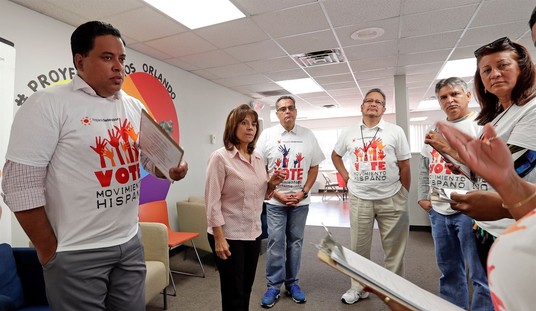Attorney General Barr sent a four-page summary of the Mueller Report to Congress Sunday, which House Judiciary Chairman Jerry Nadler posted to Twitter within minutes of its receipt. (The text of the letter can be read here.)
Before laying out his conclusions in the report, Special Counsel Robert Mueller noted that his team:
“Thoroughly investigated allegations that members of the presidential campaign of Donald J. Trump, and others associated with it, conspired with the Russian government in its efforts to interfere in the 2016 U.S. presidential election, or sought to obstruct the related federal investigations.”
And the Special Counsel concluded:
“[T]he investigation did not establish that members of the Trump Campaign conspired or coordinated with the Russian government in its election interference activities.”
There are quite a few other important points covered in the summary.
By the numbers:
- Mueller “thoroughly investigated” conspiracy/collusion and obstruction of justice allegations by President Trump, his campaign, and others associated with it.
- 19 attorneys and 40 FBI support staff were employed by the Special Counsel.
- 2,800+ subpoenas were issued.
- Nearly 500 search warrants were executed.
- 230+ orders for communication records were obtained.
- 13 requests to foreign governments for evidence.
- Approximately 500 witnesses were interviewed.
- Other than already publicly-disclosed indictments, Mueller does not recommend further indictments.
- There were no sealed indictments obtained during the investigation.
Russian Election Interference:
- There were two main efforts by the Russian government to interfere with/influence the 2016 Presidential Election.
- The first effort was a disinformation and social media campaign conducted by the Internet Research Agency (IRA).
- The second was a computer hacking effort “designed to gather and disseminate information to influence the election.”
- Russian-backed hackers successfully obtained emails from the Clinton campaign and the DCCC, and worked with WikiLeaks and others to disseminate that information.
- Criminal charges were brought against “numerous” Russian military officers for “conspiring to hack” into US computers “for the purpose of influencing the election.”
- “[T]he investigation did not establish that members of the Trump Campaign conspired or coordinated,” tacitly or expressly, “with the Russian government in its election interference activities.”
Obstruction of Justice:
- The Special Counsel made a “thorough factual investigation” into “a number of actions by the President” that “potentially rais[ed] obstruction-of-justice concerns.”
- Mueller “ultimately determined not to make a traditional prosecutorial judgment,” and “therefore did not draw a conclusion…as to whether the examined conduct constituted obstruction.”
- Still, Mueller wrote, “while this report does not conclude that the President committed a crime, it also does not exonerate him.”
- As a result, AG Barr and Deputy AG Rosenstein were left to “determine whether the conduct described in the report constitutes a crime.”
- In making that determination, the two read the report, consulted with Department officials and the Office of Legal Counsel, and “appl[ied] the principles of federal prosecution that guide charging decision.”
- Barr and Rosenstein “concluded that the evidence developed during the Special Counsel’s investigation is not sufficient to establish that the President committed an obstruction-of-justice offense.”
- Barr and Rosenstein’s judgment “was made without regard to… the constitutional considerations that surround the indictment and criminal prosecution of a sitting president.”
- Mueller noted that the absence of any underlying criminal conduct by POTUS bears upon his “intent with respect to obstruction.”
- Barr and Rosenstein found that “the report identifies no actions that…constitute obstructive conduct, had a nexus to a pending or contemplated proceeding, and were done with corrupt intent,” all of which are elements of the crime of obstruction of justice.
- Barr and Rosenstein noted that many of Trump’s alleged obstructive actions “took place in public view.”
Where do we go from here? Barr intends to release “as much of the Special Counsel’s report” as he can because of the public interest in the matter. Since the report contains information related to grand jury proceedings, which is subject to major restrictions on and criminal penalties for disclosure, Barr’s office must identify and redact those portions before making the report public. He did not give a timeline for when that process would be complete.














Join the conversation as a VIP Member